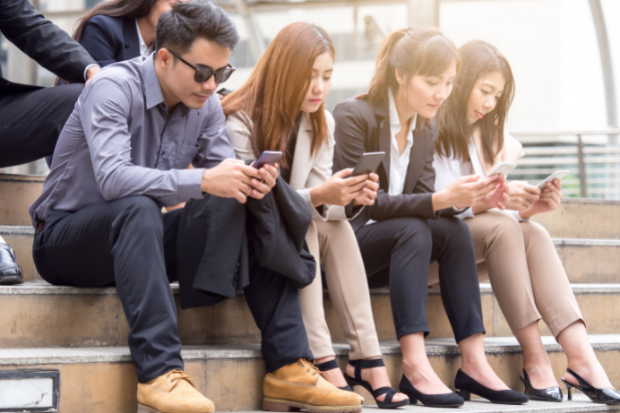Are you familiar with the concept of “phubbing,” the behavior that consists of ignoring your companions in favor of your phone? A combination of the words “phone” and “snubbing,” “phubbing” may be fairly common, but the reasons for this behavior could indicate something more serious than what this practice, at first glance rude but seemingly harmless, might suggest.
That’s according to a University of Georgia study, which finds positive correlations between these two psychological conditions and this compulsive smartphone use. Depressed people are more likely to “phub” their friends frequently. Socially anxious people, meanwhile, might prefer online social interactions to face-to-face communication, and thus exhibit more phubbing behavior.

“And of course, some people who have high social anxiety or depression are more likely to be addicted to their smartphones,” said Juhyung Sun, lead author of the study.
The study also shows that “agreeable individuals” have a lower tendency to phub their friends. They exhibit characteristics of being cooperative, polite and friendly in interpersonal relationships and social settings. Concerned about maintaining social harmony, such people refrain from phubbing, considering this behavior “rude and impolite to their conversational partners.” JB
RELATED STORIES:
Notebooks engage brains more actively than gadgets—study
Samsung unveils new foldable smartphones as competition heats up
5 K-Drama friendships that are absolutely #goals